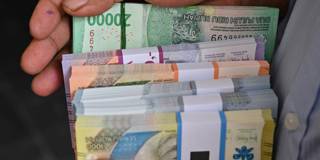In 1975, the Nobel laureate economist William D. Nordhaus suggested that developing economies might seek to prop up the value of their currencies before an election, only to undergo a devaluation soon after. Recent experiences in Nigeria, Turkey, Argentina, Egypt, and Indonesia seem to bear this out.
CAMBRIDGE – The proposition that major currency devaluations are more likely to come immediately after, rather than before, an election is being tested anew. In the biggest voting year in history, the implications could be far-reaching.
Economists will recall the Nobel laureate economist William D. Nordhaus’s influential 1975 paper “The Political Business Cycle.” According to Nordhaus, in the year leading up to an election, governments are more inclined to pursue fiscal and monetary expansion. The idea is that accelerating output and employment growth will boost the incumbent’s popularity before the election, with the bill – in terms of debt troubles and inflation – coming due only after the vote.
But Nordhaus’s seminal paper also predicted a political foreign-exchange cycle. Emerging-market and developing economies, Nordhaus suggested, might seek to prop up the value of their currencies before an election, even if it means spending down their foreign-exchange reserves, only to undergo a devaluation soon after.

CAMBRIDGE – The proposition that major currency devaluations are more likely to come immediately after, rather than before, an election is being tested anew. In the biggest voting year in history, the implications could be far-reaching.
Economists will recall the Nobel laureate economist William D. Nordhaus’s influential 1975 paper “The Political Business Cycle.” According to Nordhaus, in the year leading up to an election, governments are more inclined to pursue fiscal and monetary expansion. The idea is that accelerating output and employment growth will boost the incumbent’s popularity before the election, with the bill – in terms of debt troubles and inflation – coming due only after the vote.
But Nordhaus’s seminal paper also predicted a political foreign-exchange cycle. Emerging-market and developing economies, Nordhaus suggested, might seek to prop up the value of their currencies before an election, even if it means spending down their foreign-exchange reserves, only to undergo a devaluation soon after.